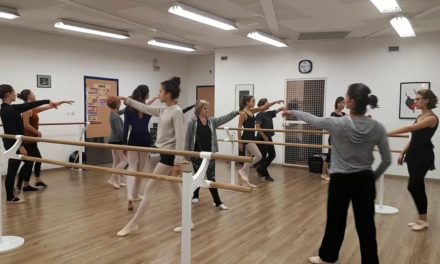
Recognizing the Dynamics of Collaborative Learning
In today’s significantly interconnected globe, the ability to function collaboratively is an important skill. As standard educational paradigms progress to fulfill the demands of the 21st century, collective discovering becomes an essential concept. This write-up delves into the complexities of collective knowing, exploring its benefits, techniques, and challenges, while providing understandings into how it forms modern-day education.
Collective discovering surpasses just interacting.

It personifies an instructional strategy where people take part in a collective effort to gain understanding, solve troubles, and accomplish an usual objective. This approach highlights the worth of diversity in idea and promotes deeper understanding through communication and shared experience.
The Benefits of Collaborative Understanding
Collaborative learning supplies a myriad of advantages, making it a popular method in academic settings across the globe. Among the main benefits is the enhancement of critical thinking skills. As students involve with peers, they are exposed to various viewpoints, urging them to evaluate and analyze information much more seriously.
One more significant advantage is the renovation in interaction abilities. Collaborative knowing environments demand active listening, articulate expression of concepts, and considerate discussion. These skills are important, not simply academically, but in professional and social contexts too.
Cognitive development is likewise notably bolstered via collective initiatives. Working together calls for students to express their thinking, obstacle presumptions, and integrate different perspectives, causing much deeper cognitive processing and retention.
- Boosted critical assuming
- Improved interaction abilities
- Raised cognitive advancement
- Greater retention prices
- Fostering of social and management skills
The collective effect of these advantages is a much more all natural educational experience. Learners not only acquire knowledge however likewise establish vital life abilities that prepare them for future collaborative ventures in any area.
Strategies for Efficient Collaborative Discovering
Applying collaborative discovering effectively needs thoughtful approach and preparation.

Educators needs to create an atmosphere conducive to partnership, where students really feel safe and determined to get involved freely. Right here are some strategies that can assist in effective collective understanding experiences.
Firstly, developing clear purposes and assumptions is vital. When learners understand the goals and their functions within the team, they are more likely to engage meaningfully. Educators must communicate these objectives explicitly and guarantee they are lined up with the curriculum.
Second of all, the use of diverse team structures can enrich the learning experience. By varying team make-up, whether by skill level, rate of interest, or background, educators can promote dynamic interactions and a much more comprehensive understanding of the material.
Difficulties in Collaborative Learning
While joint learning uses numerous benefits, it is not without its difficulties. One common problem is the variation in group member involvement. Some individuals may dominate discussions, while others might be less inclined to contribute, leading to an imbalance in the knowing experience.
- Diverse levels of participation
- Possible for conflict
- Time management difficulties
- Diverse levels of dedication
Moreover, disputes can develop because of varying point of views, working designs, or misconceptions. Educators has to be geared up to manage these disputes properly, fostering an environment where considerate discussion dominates.
The Role of Technology in Expand (x-5)(x+2)(x+7) Collaborative Understanding
In the electronic age, modern technology plays an instrumental role in facilitating collective understanding. Online systems damage geographical barriers, permitting individuals from varied places to team up in actual time. These tools use a wide range of functions that improve collaborative efforts, from shared papers and discussion online forums to virtual conference spaces.

Technology not only expands the extent of that can take part in joint understanding yet also enhances the quality of communication. Learners can access a wider variety of sources, engage with interactive material, and use their expertise in innovative methods.
Future of Collaborative Discovering
Looking ahead, the future of collaborative discovering shows up appealing. As universities remain to accept innovation and innovate instructional strategies, partnership will likely come to be a cornerstone of discovering experiences in any way degrees of education and learning.
Inevitably, the essence of collaborative learning depends on its capability to encourage people through shared initiative and mutual understanding. As we move forward, growing these experiences will certainly be crucial in preparing learners not simply to be successful academically, however to flourish in a complex, interconnected globe.










